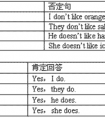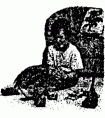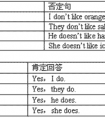改错。( ) 1.Howmanybookdoyouhave?__________________A B C( ) 2.Theyworkedveryhardly.__________________A BC ( ) 3.Theiceinthenorthwillstarttobecomingwater.__-六年级英语
1).shall 用于第一人称,征求对方的意见。
What shall we do this evening?
2).shall 用于第二、三人称,表示说话人给对方的命令、警告、允诺或威胁。
①. You shall fail if you don’t work hard.(警告)
②. He shall have the book when I finish it.(允诺)
③. He shall be punished.(威胁)
will和would的用法:
1.表示请求、建议等,would比will委婉客气。如:
Would you pass me the book?
2.表示意志、愿望和决心。如:
I will never do that again.
They asked if we would do that again.
3.用“will be”和“will(would) + have + 过去分词”的结构表示推测,主要用于第二、三人称。
前者表示对目前情况的推测,后者表示对已经完成的动作或事态的推测。如:
This will be the book you want.
He will have arrived by now.
The guests would have arrived by that time.
I thought you would have finished this by now.
4.will表示习惯、请求,固有性质等。
Everyday he will sit here hour after hour doing nothing.(习惯)
Will you help me with my English?(请求)
The door won't open. (固有性质)
5.Would可表示过去反复发生的动作或某种倾向。
Would表过去习惯时比used to正式,并没有“现已无此习惯”的含义。如:
The wound would not heal.
During the vacation he would visit me every week。
6.表料想或猜想。如:
It would be about ten when he left home.
What would she be doing there?
I thought he would have told you all about it.
情态动词用法口诀:
情态动词两特点,动词原形接后面,说话语气较委婉。
can"能力"may"许可",must"责任"或"义务"。
否定回答needn’t换,"需要"need,dare"敢"。
should"应该",would"愿",haveto"被迫"表客观。
can, could, may, might, must 皆可表示推测,其用法如下:
1)情态动词+动词原形,表示对现在或将来的情况的推测,此时动词通常为系动词。例如:
I don't know where she is,she may be in Wuhan.我不知道她在哪儿,可能在武汉。
2)情态动词+动词现在进行时,表示对现在或将来正在进行的情况进行推测。例如:
At this moment,our teacher must be correcting our exam papers.这时,想必我们老师正在批改试卷。
3)情态动词+动词完成时,表示对过去情况的推测。例如:
The road is wet.It must have rained last night.地是湿的,昨天晚上一定下雨了。
4)情态动词+动词的现在完成进行时,表示对过去正在发生事情的推测。例如:
Your mother must have been looking for you.你妈妈一定一直在找你。
5)推测的否定形式,疑问形式用can't,couldn't表示。例如:
Mike can't have found his car,for he came to work by bus this morning.
迈克一定还没有找回他的车,因为早上他是坐公共汽车来上班的。
注意:could,might表示推测时不表示时态,其推测的程度不如can,may。
考点名称:动词不定式
- 不定式定义:
由to+动词原形构成。不定式是一种非限定性动词。而非限定动词是指那些在句中不能单独充当谓语的动词,可分为不定式,动名词,现在分词和过去分词。
“动词不定式”由动词+不定式构成。动词不定式在句中可以作句子除谓语之外的任何句子成分。动词不定式的被动形式除了一般形式外还有其完成式和进行式。
常见的有:like / love,want,need,ask,help等。
例:I like to play with Tom. 我喜欢和汤姆玩。
I want to play with Tom. 我想和汤姆玩。
I like to eat dumplings. 我喜欢吃饺子。 - 动词不定式一般结构:
疑问词who,what,which,when,where,whether,how后可接不定式构成不定式短语,在句中作主语、宾语、表 语等。如:
①When to leave for London has not been decided yet. (不定式在句子中做主语)
②Mr. Smith didn't know whether to leave or stay there. (不定式在句子中做宾语)
③I asked Professor Xu how to learn English well. (不定式在句子中做直接宾语)
④The question was where to get the medicine needed. (不定式在句子中表语)
以上例句中疑问词+不定式部分,均可转换为相应的从句形式。如:
①When we shall leave…
③…how I could learn…
经常在这种结构中使用的动词有:
consider,decide,discover,explain,find out,forget,hear,know,lea rn,observe,understand,wonder等。 - 动名词与不定式的区别:
1 动名词与不定式的区别:
动名词表达的是:状态,性质,心境,抽象,经常性,已发生的
不定式表达的是:目的,结果,原因,具体,一次性,将发生的
2 接不定式或动名词,意义相同。
3在下列情况下,一般要用不定式:
①hate,like,love前有would(should)时,
如:I'd like to have a cup of coffee.
②当谓语动词begin,continue,start等是进行式时,
如:Thestudents are starting to work on the di fficult maths problem.
③begin,continue,start与know,understand等状态动词连用时,
如:I soon began to understand what was happening.
④.advise,allow,encourage,forbid,permit等动词后接动名词作宾语,或带不定式作宾语补足语。如:
Our teachers don't permit our/us swimming in the lake.
Our teachers don't permit us to swim in the lake.
4 部分动词后接不定式或动名词时,意义差别较大,应根据句子语境选择使用。
forget,remember,regret后接不定式,表示现在或未来的动作,接动名词表示动作已经发生。如:
Don't forget to post the letter for me.
Have you forgotten meeting her in Beijing Airport?
Remember to close the windows before you leave.
I remember writing him a letter a year ago.
We regret to tell you that all of you are not invited toattend the meeting.
They regretted ordering these books from abroad. - 省to的动词不定式:
(1)情态动词( 除ought 外,ought to意思是“应该”,是情态动词,只有一种形式,后边接动词不定式,to不能省略。
ought to没有人称和数的变化,后接动词原形可以表示现在、将来或过去将来,由时间状语或上下文决定。例如:
They ought to come tomorrow.他们明天应当来):
(2)使役动词 let,have,make:
(3)感官动词see,watch,look at,notice,observe,hear,listen to,smell,feel,find 等后作宾补,省略to。
注意:在被动语态中则to 不能省掉。
在使役动词中get除外(get sb. to do sth.)
I saw him dance.
=He was seen to dance.
The boss made them work the whole night.
=They were made to work the whole night.
(4)表示个人意愿或倾向的would rather,had better,might(just) as well:rather than置于句首时。
Rather than ride on a crowded bus,he always prefers to ride a bike.
(5)Why… / why not…:
(6)help 可带to,也可不带to,help sb (to) do sth:
(7)but和except:but前是动词do时,后面出现的动词用不带to的动词不定式。
(8)由and,or和than连接的两个不定式,第二个to 可以省去:
(9)通常在discover,imagine,suppose,think,understand等词后,可以省去to be:
He is supposed (to be) nice. 他应该是个好人。
(10)but作介词,后接不定式结构时,前面谓语动词部分若含有do的形式时,but后的不定式要省去to,否则要带to。
He wants to do nothing but go out.
He wants to believe anything but to take the medicine.
(11)当两个或多个不定时短语由连词and,but或or连接时,后一个或几个不定式符号to常省略。但若表示对比、对照关系时,则不能省略。
He wants to move to France and marry the girl.
The purpose of new technologies is to make life easier,not to make it more difficult.
(12)不定式做表语时,一般要带to,但若主语部分中含有do的各种形式时,符号to可省去。
We've missed the last bus.All we could do now is walk home.
考点名称:祈使句
祈使句:
表达说话人对对方的叮嘱、劝告、希望、禁止、请求或命令等。
祈使句一般以动词原形开头,无时态和数的变化,句末用句号或感叹号,用降调。
祈使句的肯定结构是:
动词原形+其他;
否定结构是:
Don't+动词+其他。
另外,Let's也能引导祈使句, 其后接动词原形。
例:Please open the door. 请打开门。
- 最新内容
- 相关内容
- 网友推荐
- 图文推荐
| [家长教育] 孩子为什么会和父母感情疏离? (2019-07-14) |
| [教师分享] 给远方姐姐的一封信 (2018-11-07) |
| [教师分享] 伸缩门 (2018-11-07) |
| [教师分享] 回家乡 (2018-11-07) |
| [教师分享] 是风味也是人间 (2018-11-07) |
| [教师分享] 一句格言的启示 (2018-11-07) |
| [教师分享] 无规矩不成方圆 (2018-11-07) |
| [教师分享] 第十届全国教育名家论坛有感(二) (2018-11-07) |
| [教师分享] 贪玩的小狗 (2018-11-07) |
| [教师分享] 未命名文章 (2018-11-07) |





![Therabbitlikes_________.[ ]A.bonesB.chickenC.fishD.vegetables-四年级英语](http://www.00-edu.com/d/file/ks/4/1/9/2019-08-12/small19d909f6c152d7dbd99050270d09dd701565564237.gif)
